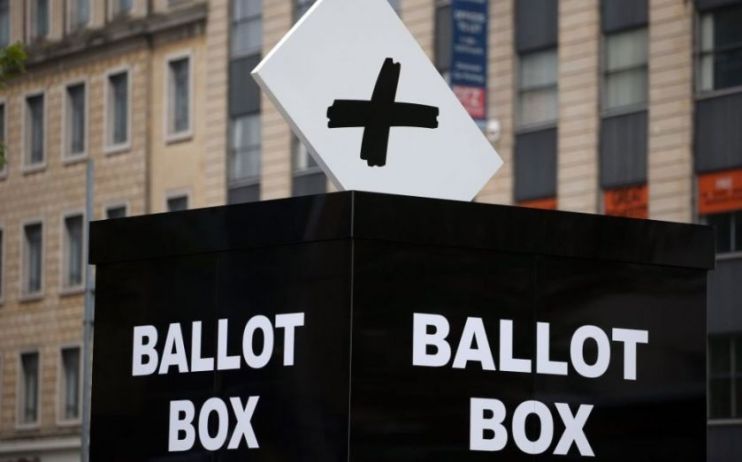Voting by pencil and paper is still the best way to keep elections secure and democracy safe

Yesterday for City A.M., Christopher Flinos, co-founder of HAYVN, an online OTC and custody trading platform for cryptocurrencies, penned an article proposing that blockchain technology could be used to implement an electronic voting system for future UK elections.
As the government minister responsible for our elections, I agree with anyone who advocates the importance of boosting participation in democracy and getting more people voting.
But healthy democracy also thrives on debate and challenge. So on this occasion, I’m going to respectfully disagree with Mr Flinos’ support for moving to online voting.
Read more: Blockchain: Protecting our Democracy
I’ve been following the idea for some time, but have to conclude that the threshold people would rightly expect for security for e-voting has not been met. Ensuring voters can be confident in free and fair UK elections is my priority.
Voting online would open our system to significant risk of cyber attacks and hacking.
As the recent report from the Intelligence and Security Committee highlighted, the UK’s use of voting with pencil and paper makes it significantly harder to interfere with our elections — our electoral system does not lend itself to direct manipulation.
Call it traditional, or call it archaic — it works. As the former head of MI6, Sir John Sawers, aptly put it: “Bizarrely the stubby pencil and piece of paper that you put your cross on in the ballot box is actually much more secure than anything which is electronic”.
But this government is not complacent when it comes to strengthening the integrity of our elections, and we are updating election law to protect them for the future.
We are bringing forward new legislation to provide the security services and law enforcement agencies with the tools they need to disrupt hostile state activity, and have already established the Counter Disinformation Unit to improve our capabilities to identify and respond to harmful false information online.
Read more: How do UK general elections impact the stock market?
Digital technology has definitely helped our modern democracy to flourish, reaching more people and engaging them in the debate.
People want to know who is talking, though. We know that voters value transparency.
That’s why I recently announced new rules that will require election campaign content promoted online by a political party, candidate or campaigner to have a “digital imprint” — explicit and accessible information linked to the content, that clearly shows who is behind it.
Our proposals would lead to one of the most comprehensive regimes operating in the world today.
These measures, along with the online media literacy strategy we are developing, will help empower voters to scrutinise both the source and validity of what they are reading online. This will enable them to make their own decisions on the strength of the arguments put forward.
And going online has also certainly made it easier to register to vote, securely and quickly. The process takes just five minutes online and the last election saw record numbers of people applying to register.
All of this leads up to that moment when you finally make your decision and cast your vote at the ballot box — so we’re strengthening the integrity of this physical process too.
We’re going to bring in the simple requirement for people to show photo ID before voting, to add security to the process and give the public that increased confidence that their vote is theirs and theirs alone. At the moment, we merely need to walk up and say our name to get our ballot paper. That needs to be brought up to date with how we live now. Postal voting is important to many people in our country too, especially if, for example, they find it hard to vote in person for health reasons. I am also improving the security of postal voting.
Modernising the rules that underpin our elections and bringing them in line with how society operates today is important. All of these measures will help strengthen the integrity of our elections, and in turn protect public trust in democracy.
I want people to know that in this country, your vote counts. It is secure. And we are passionate about keeping our democracy safe for the future.
Main image credit: Getty